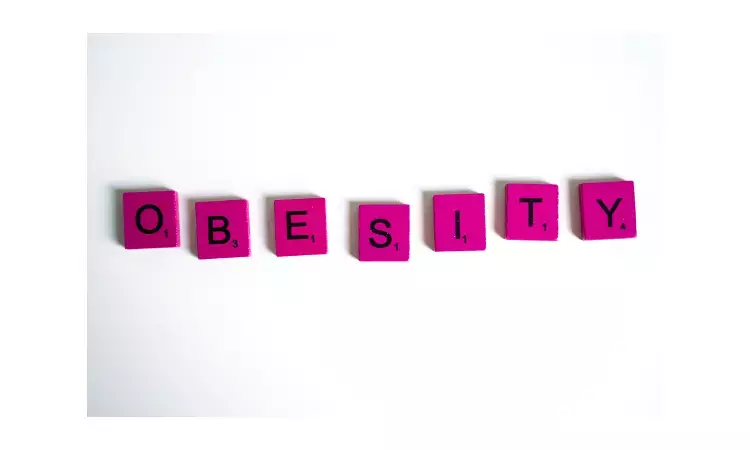- Home
- Medical news & Guidelines
- Anesthesiology
- Cardiology and CTVS
- Critical Care
- Dentistry
- Dermatology
- Diabetes and Endocrinology
- ENT
- Gastroenterology
- Medicine
- Nephrology
- Neurology
- Obstretics-Gynaecology
- Oncology
- Ophthalmology
- Orthopaedics
- Pediatrics-Neonatology
- Psychiatry
- Pulmonology
- Radiology
- Surgery
- Urology
- Laboratory Medicine
- Diet
- Nursing
- Paramedical
- Physiotherapy
- Health news
- Fact Check
- Bone Health Fact Check
- Brain Health Fact Check
- Cancer Related Fact Check
- Child Care Fact Check
- Dental and oral health fact check
- Diabetes and metabolic health fact check
- Diet and Nutrition Fact Check
- Eye and ENT Care Fact Check
- Fitness fact check
- Gut health fact check
- Heart health fact check
- Kidney health fact check
- Medical education fact check
- Men's health fact check
- Respiratory fact check
- Skin and hair care fact check
- Vaccine and Immunization fact check
- Women's health fact check
- AYUSH
- State News
- Andaman and Nicobar Islands
- Andhra Pradesh
- Arunachal Pradesh
- Assam
- Bihar
- Chandigarh
- Chattisgarh
- Dadra and Nagar Haveli
- Daman and Diu
- Delhi
- Goa
- Gujarat
- Haryana
- Himachal Pradesh
- Jammu & Kashmir
- Jharkhand
- Karnataka
- Kerala
- Ladakh
- Lakshadweep
- Madhya Pradesh
- Maharashtra
- Manipur
- Meghalaya
- Mizoram
- Nagaland
- Odisha
- Puducherry
- Punjab
- Rajasthan
- Sikkim
- Tamil Nadu
- Telangana
- Tripura
- Uttar Pradesh
- Uttrakhand
- West Bengal
- Medical Education
- Industry
Sustained weight loss may delay onset of cardiometabolic diseases, finds study

Diabetes mellitus and obesity have a complex relationship. There is a strong association of type 2 diabetes with obesity. Obesity is the leading risk factor for type 2 diabetes.
Sustained weight loss was associated with a delayed onset of cardiometabolic diseases, particularly with a greater magnitude of weight loss, finds a population cohort study by Lisa Bailey-Davis and team.
The findings of the study are published in The American Journal of Cardiology.
The objective of the study was to determine the impact of obesity maintenance, weight regain, weight loss maintenance, and magnitudes of weight loss on future risk and time to developing these cardiometabolic conditions.
The study was a retrospective cohort study of adults receiving primary care at Geisinger Health System between 2001 and 2017. Obesity maintainers (OM) had obesity (body mass index≥30 kg/m2) and maintained their weight within§3% from baseline (reference group). Both weight loss rebounders (WLR) and weight loss maintainers (WLM) had obesity at baseline and lost>5% body weight in year 1; WLR regained≥20% of weight loss by end of year 2 and WLM maintained≥80% of weight loss. Incident type 2 diabetes, hypertension, and hyper-lipidemia, and time-to-outcome were determined for each study group and by weight loss category for WLM.
The results of the study were
• A total of 63,567 patients included, 67% were OM, 19% were WLR, and14% were WLM. The mean duration of follow-up was 6.6 years (SD, 3.9).
• Time until the development of electronic health record-documented type 2 diabetes, hypertension, and hyperlipidemia was longest for WLM and shortest for OM.
• WLM had the lowest incident type 2 diabetes, hypertension (adjusted HR 0.723, and hyperlipidemia.
• WLM with the greatest weight loss (>15%) had a longer time todevelop any of the outcomes compared with those with the least amount of weight loss(<7%).
Davis and team concluded that "In an integrated delivery network population, sustained weight losswas associated with a delayed onset of cardiometabolic diseases, particularly with agreater magnitude of weight loss"
Medical Dialogues consists of a team of passionate medical/scientific writers, led by doctors and healthcare researchers. Our team efforts to bring you updated and timely news about the important happenings of the medical and healthcare sector. Our editorial team can be reached at editorial@medicaldialogues.in.
Dr Kamal Kant Kohli-MBBS, DTCD- a chest specialist with more than 30 years of practice and a flair for writing clinical articles, Dr Kamal Kant Kohli joined Medical Dialogues as a Chief Editor of Medical News. Besides writing articles, as an editor, he proofreads and verifies all the medical content published on Medical Dialogues including those coming from journals, studies,medical conferences,guidelines etc. Email: drkohli@medicaldialogues.in. Contact no. 011-43720751


